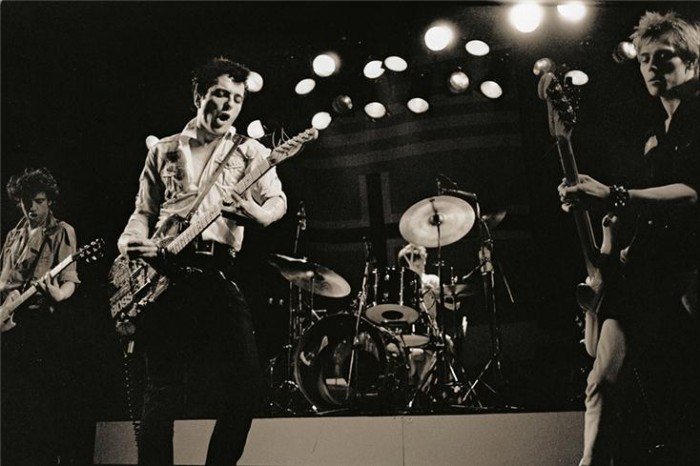London, 1979. It has been a decade of rebellious confrontation, slashed jeans, and protests against mainstream society. To sum it all up: Loud. However, this active time of musical production, pioneered by individuals who desired to create and say something, should not be confused with ‘noise.’ The raging guitar riffs and screaming vocals are loud, but they are deliberate and carefully composed by the music scene’s enthusiasts. Among these are the legendary punk rock band The Clash, who released their third studio album London Calling in 1979 with Epic Records. The album was a commercial success in the UK and US, and a significant triumph for the group, as it diverged from their previous work, incorporating elements of rockabilly, reggae, ska, and jazz-inspired sounds. London Calling demonstrates the band’s musical innovation and complex craftsmanship; it challenged the long-availing, widespread punk-rock myth that all songs sound the same.
The album begins with the title track “London Calling,” a confrontation with the iconic city’s despairing state of high unemployment and social unrest. Joe Strummer calls out the city’s wrongs and criticizes its establishments as he sings, “The ice age is coming/ The sun is zooming in/ Engines stop running/ And the wheat is growing thin.” Strummer and Mick Jones created the album over the span of several months in Jones’ grandmother’s apartment; Strummer wrote lyrics while Jones composed the music. The album tackles significant social issues, including the Spanish Civil War (“Spanish Bombs”), the failures of capitalism (“Clampdown”), and conflicts with the police (“The Guns of Brixton”). The song “Lost in the Supermarket” deals with struggles of self-identity in a world plagued by commercialism, juxtaposed with the backdrop of a shopping market. Strummer compares the search for one’s self with the pursuit of a grocery item, “I’m all lost in the supermarket/ I can no longer shop happily/ I came in here for a special offer/ Guaranteed personality.” Likewise, other songs on the album deal with similar universal human issues in the context of London’s socio-economic circumstances in the '70s.
While the album is filled with fast guitar riffs and loud drum beats—the standard musical duo of many punk songs—they are accompanied with an organ and a series of horn instruments. The latter’s role in the musical ensemble contributes to the album’s reggae and jazz-inspired motifs. The horns are particularly apparent in “Rudie Can’t Fail,” “The Right Profile,” and “Wrong ‘Em Boyo.” “Revolution Rock” is immersed in reggae influences evidenced in the repetition of the brass instruments, the off-beat guitar, and relaxed thumping of the drums. This is all complemented by Strummer’s carefree manner of singing. The role of the organ and brasses in the album provide a stark contrast with the band’s two earlier works, The Clash (1977) and Give ‘Em Enough Rope (1978), which primarily featured rock music instruments. These changes suggest bold stylistic experimentation and a conscious desire to further evolve their music.
London Calling is a unique contribution in the history of punk rock. Its ranging musical composition, distinctive instrumental ensemble, and ground-breaking lyrics demonstrate evident diversions from The Clash’s earlier sound or the music of The Sex Pistols and The Ramones. Even its commercial success could be seen as opposing the punk tradition of primarily underground activity. Despite some of these differences, the album encapsulates punk music’s essence of free creative speech, total musical authorship, and rebellion against the mainstream. London Calling challenges and rebels against the characterized sounds of its own genre, proving to be a bold musical statement and a truly iconic example of punk music.









